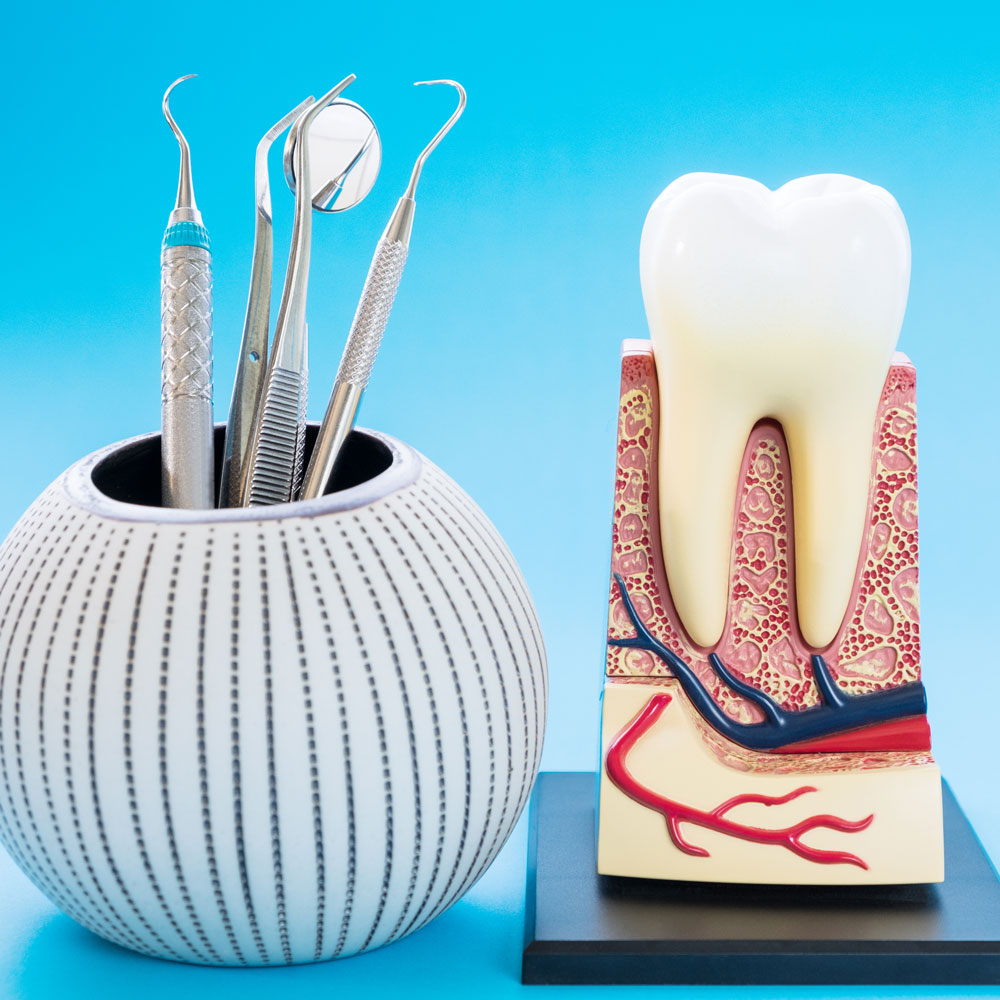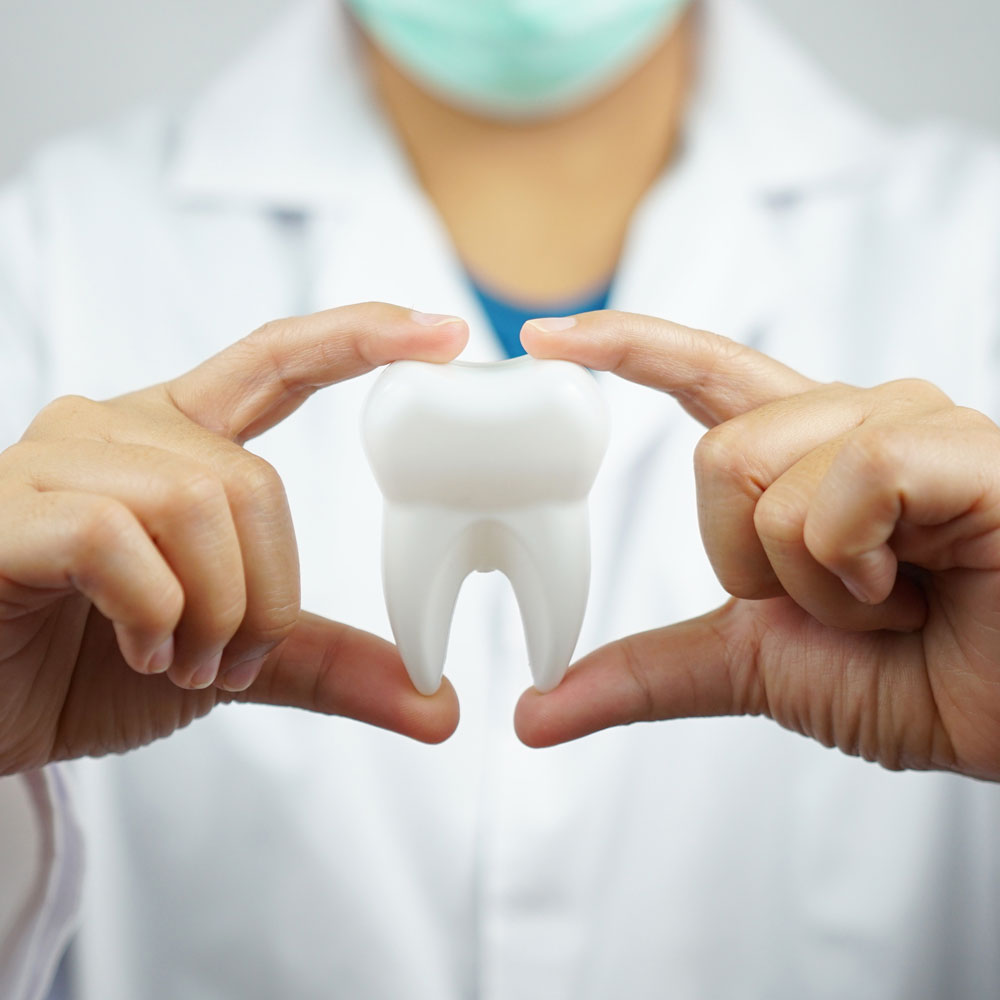
When is root canal treatment an emergency?
Over the years, root canal treatment has gained a reputation for being an excruciatingly painful dental procedure. This statement, however, could not be farther from the truth; a root canal treatment can be a life-saving procedure that is generally employed to eliminate toothache and prevent the infection from progressing further. Emergency root canal treatment can be a sigh of relief when you find yourself dealing with unbearable toothache.
In what cases you may need a root canal treatment

Unbearable pain
Our teeth consist of three layers. The outermost, calcified and protective layer is known as the enamel. The middle layer is a little less calcified and softer (known as dentine). The innermost layer is the dental pulp, which houses the tooth’s nerves and vessels. When the pulp gets infected, it generates an inflammatory response, leading to tooth pain and prompting you to visit a dentist. Sometimes, the pain of the compromised pulp chamber can be throbbing, continuous and unbearable, which makes it impossible for you to eat, sleep, or focus on any task done. When this occurs, delaying a visit to the dentist might not be an option. At this point, you will require an emergency dentist appointment for an emergency root canal treatment to relieve the pain and remove the infected pulp tissue.

Pus discharge
In some cases of a severely infected tooth, pus might come out of the gums surrounding the tooth structure. This is a clear and affirmative sign of a tooth infection that requires emergency root canal treatment to drain and clear the pus and prevent it from spreading further. Any delay in treating a tooth with pus discharge can have terrible consequences. You might end up losing that tooth, and there is always a chance of the infection spreading to your bloodstream and turn into a life-threatening complication.

Swelling around the tooth
When a swelling accompanies a decayed painful tooth in and around the gums, it is a sign that there is a dental abscess on that tooth. In such cases, only an emergency root canal treatment can drain the pus and relieve pain and other symptoms associated with a dental abscess.

Severely damaged tooth
Dental decay or trauma to the tooth can cause significant damage to the dental pulp. In such instances, emergency root canal treatment is carried to save the tooth.

Tooth discolouration
Tooth discolouration can signal damage to the dental pulp or tooth necrosis. This may also require an emergency root canal treatment to save the tooth.

What to expect during emergency root canal treatment?
An emergency root canal treatment can involve anywhere from one to three or sometimes more visits to our dental clinic. The number of visits is determined by the extent of infection and damage and how your tooth responds to treatment.
During your initial visit to our dental clinic in London, our dentist will examine your mouth and take some X-rays of the infected tooth.
Once they have determined the extent of the damage and cause of the discomfort, they will advise you to go for an emergency root canal treatment.
Before starting the root canal procedure in London, our excellent dentist will numb the treatment area with anaesthetics. Once the tooth is numbed, our dentist will fix a dental dam over the treatment area and isolate the tooth.

Next, our dentist will use a dental drill to open the top of your tooth carefully. This opening allows our dentist to enter the root of your tooth with specialised root canal instruments. Here, they will remove all the infected tissue.
Once all the infected tissue is out, our dentist will seal the root canal with inert dental materials.
The final step of the root canal treatment is to restore the crown structure of your tooth with permanent dental cement or composite resins. Our dentist may also recommend that you opt for a dental crown in cases of a severely damaged tooth.
Depending on the infected tooth and how it responds, our dentist may complete the procedure in a single sitting or multiple visits.

What happens when you get a root canal treatment?
You may experience some tooth sensitivity for the first few days after a root canal treatment is completed. This eventually subsides.
Some may also experience uneven bite and mild pain for a few days, which will go away on its own. Our dentists may also prescribe some antibiotics and painkillers to help you cope with the discomfort. Nonetheless, you should not be experiencing any unbearable pain or swelling. If something like this occurs, call us immediately, and we will schedule an emergency appointment for you.

Possible complications if root canal treatment is avoided
- Continuous pain makes eating, talking, and everyday activities unbearable.
- Swelling.
- Difficult in opening and closing the mouth.
- Swelling can progress to compress the windpipe and can be life-threatening.
- Loss of tooth.
- Infection can progress to infect the gums and even the jawbone.
- Infection from the decayed tooth can also enter the bloodstream compromising overall health.
- Bad breath.
- Foul taste in the mouth.
- Fever.

Alternative to root canal treatment
The only alternative to a root canal treatment is the extraction/removal of the tooth. Extraction is a much more invasive procedure, and you end up losing your teeth. As dentists, our first priority is to help you preserve your natural teeth for as long as possible, and we will try our level best to make sure the tooth can be saved. No matter how superior a tooth replacement option is, it can never compare to your original teeth. Our dentist will always suggest you go for root canal treatment and save the tooth. Nonetheless, if this proves impossible, the damaged tooth will be extracted and later on replaced with a dental implant or a dental bridge.
